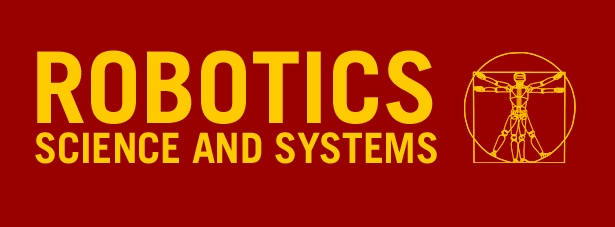
Early Career Spotlight
 |
J. Andrew Bagnell |
Biography: J. Andrew Bagnell is an Associate Professor with the Robotics Institute, the National Robotics Engineering Center and the Machine Learning Department at Carnegie Mellon University. His research centers on the theory and practice of machine learning for decision making and robotics. Dr. Bagnell directs the Learning, AI, and Robotics Laboratory (LAIRLab) within the Robotics Institute. Dr. Bagnell serves as the director of the Robotics Institute Summer Scholars program, a summer research experience in robotics for undergraduates throughout the world. Dr. Bagnell and his group's research has won awards in both the robotics and machine learning communities including at the International Conference on Machine Learning, Robotics Science and Systems, and International Conference on Robotics and Automation. Dr. Bagnell's current projects focus on machine learning for dexterous manipulation, decision making under uncertainty, ground and aerial vehicle control, and robot perception. Prior to joining the faculty, Prof. Bagnell received his doctorate at Carnegie Mellon in 2004 and completed undergraduate studies with highest honors in electrical engineering at the University of Florida. |
|
From Supervision to Imitation to Reinforcement: Machine Learning for High Performance Robotics Programming robots is hard. While demonstrating a desired behavior may be easy, designing a system that behaves this way is often difficult, time consuming, and ultimately expensive. Machine learning promises to enable "programming by demonstration" for developing high-performance robotic systems, and in the last decade that promise has truly begun to become a reality. I'll discuss the spectrum of machine learning techniques of increasing sophistication from the most familiar classification problems, to structured prediction, to imitation learning, and to making reinforcement learning practical in robotics. I'll consider case studies in learning dexterous manipulation, activity forecasting of drivers and pedestrians, to imitation learning of robotic locomotion and rough-terrain navigation. These case-studies highlight key challenges in applying the algorithms in practical settings.
|
|